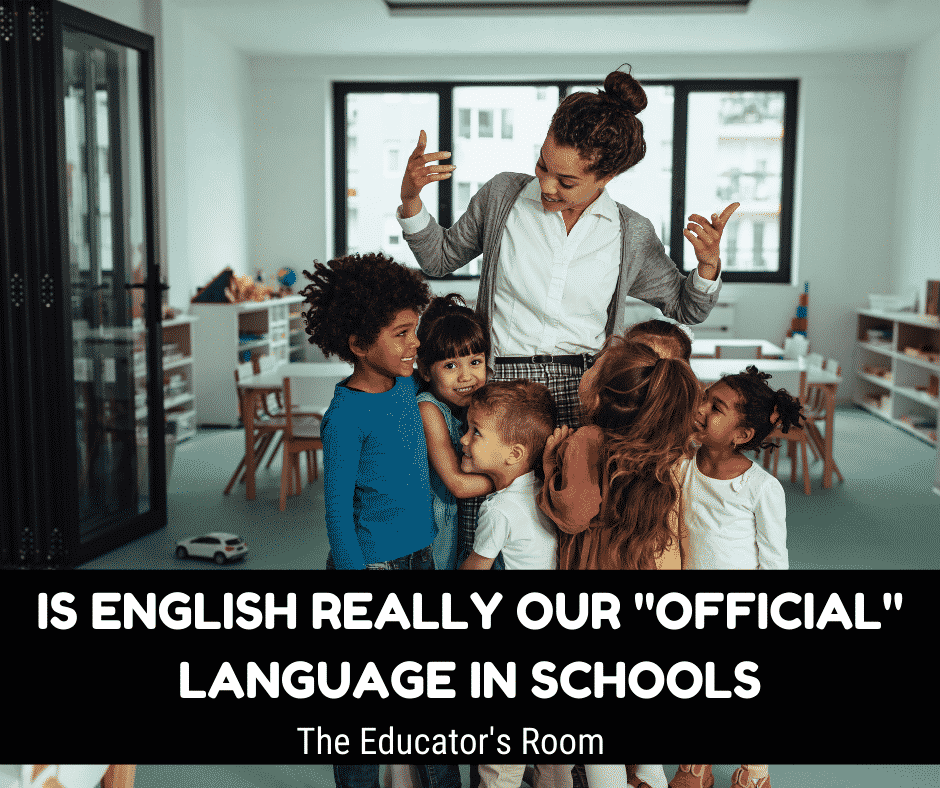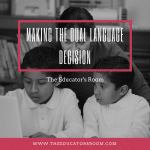English, the “Official” American Language
Although the United States does not have an official language, everyone knows that English is the language of the land. Despite our history of multilingual immigrants who later became Americans, English has always been the “American language.” Our school system has reinforced this idea and has caused many challenges for English language learners.
English has become the “official” language because of the melting pot phenomenon. As immigrants from all over the world came to the United States, they came together and formed a unified American identity. Americans spoke English, lived in a suburban house with a white picket fence, and had 2.5 children. The American identity became so strong that cultural or language differences were seen as un-American. If someone spoke a language other than English, they spoke a “foreign” language and were often pressured to stop speaking their native language. This happened more often than not in schools.
[bctt tweet=”In fact, one reason why I became a French teacher is that I lost the opportunity to be bilingual from birth. My grandfather was forbidden from speaking Finnish while at school. ” username=””]
Language Shaming in American Public Schools
My grandfather, being a first-generation immigrant, spoke Finnish at home with his family. At school, he was told that he was not allowed to speak Finnish, only English. His teacher yelled at him for speaking Finnish with his friends. Unfortunately, he did not teach Finnish to his children because he did not want his children to experience the same language shaming that he did.
Sadly, situations like my grandfather’s are not part of our past. I had a family member who taught in Arizona and was told by her administration to tell students they could not speak Spanish in school. The administration pressured her and her fellow teachers to tell their students that only English was allowed.
As an ELL and French teacher, I have seen too many multilingual students become ashamed of their native languages. One situation in particular really stood out to me. I had an EL student who spoke three languages fluently at home. At school, he was very social, often switching languages depending on who he was speaking to. One day, he became withdrawn and refused to respond to his fellow students when they spoke to him in his native language. Concerned, I approached him one on one and asked him what was going on. He said that only English was “cool” and refused to speak anything else. I am not sure where he heard that, but my heart broke for him. If only he knew that multilingualism is a skill and not something to be ashamed of.
The Benefits of Speaking More than One Language
No one should be ashamed of being bilingual or multilingual. In fact, just the opposite! Those who speak one, two, three, or four languages should be proud.
[bctt tweet=”Speaking more than one language is a rare skill that few Americans have. ” username=””]
As a language teacher, it is my duty to educate students about the benefits of bilingualism and multilingualism. Several studies prove that speaking more than one language strengthens memory, problem-solving skills, focus and can even delay the onset of dementia! Speaking another language promotes brain growth, but it causes people to learn about different perspectives and view the world in a way they may not have before. One of the best benefits of knowing more than one language is that the more languages you speak, the more people around the world that you can connect with!
If you would like to join me in celebrating language diversity in your classroom, here are a few tips for how to do so:
How to Celebrate Language Diversity in the Classroom
1. If your multilingual students are comfortable, see if they would be willing to teach you and their peers how to say hello in their native language!
2. Invite a bilingual co-teacher to speak in your classroom and how bilingualism plays a role in their life.
3. If you speak another language or just a few words, share that with your class!
Let’s celebrate the beauty of languages together!




